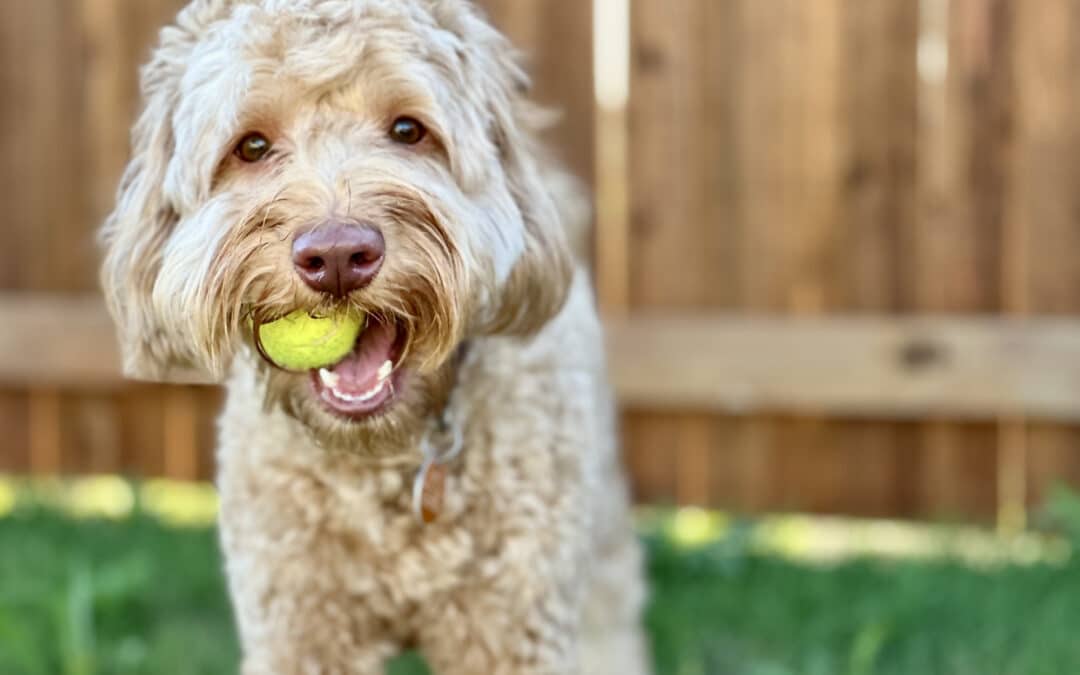Labradoodles are a popular breed of dogs known for their intelligence, friendly nature, and hypoallergenic coats. If you’re considering adopting a Labradoodle in Dallas, you’re in for a treat! Dallas is a vibrant city with a thriving pet community, and there are plenty of reputable adoption centers where you can find your perfect furry companion. This comprehensive guide will walk you through the process of adopting a Labradoodle in Dallas, from understanding the breed to finding the right adoption center, preparing for your new pet, and providing the best care possible. So, let’s dive in and embark on this exciting journey together!
What is a Dallas Labradoodle?
Labradoodles are a crossbreed between a Labrador Retriever and a Poodle. They were originally bred in Australia in the 1980s with the goal of creating a hypoallergenic guide dog. Labradoodles are known for their friendly and sociable nature, making them excellent family pets. They are intelligent, easy to train, and have a low-shedding coat, which is ideal for individuals with allergies. In Dallas, Labradoodles have gained popularity due to their adaptability to the city’s climate and their compatibility with the active lifestyle of its residents.
Why Choose to Adopt a Labradoodle in Dallas?
There are several reasons why adopting a Labradoodle in Dallas is a great choice. Firstly, Labradoodles are highly adaptable and can thrive in various living environments, including apartments and houses. Dallas offers a diverse range of neighborhoods and communities, providing ample opportunities for Labradoodles to engage in outdoor activities and socialize with other dogs and pet owners. Additionally, Labradoodles are known for their friendly and gentle temperament, making them great companions for individuals and families alike. By adopting a Labradoodle in Dallas, you not only gain a loving pet but also become part of a vibrant and pet-friendly community.
Finding Reputable Labradoodle Adoption Centers in Dallas
When it comes to adopting a Labradoodle in Dallas, it’s crucial to find a reputable adoption center. These centers play a vital role in ensuring that the Labradoodles are well-cared for, properly socialized, and ready for their forever homes. To find a reputable adoption center, start by conducting thorough research online. Look for centers that have positive reviews, transparent adoption processes, and a commitment to the welfare of their animals. Additionally, consider reaching out to local veterinarians, pet owners, and Labradoodle breeders for recommendations. They can provide valuable insights and guidance to help you make an informed decision.
The Adoption Process
The adoption process for Labradoodles in Dallas typically involves several steps to ensure that the adoptive families are the right fit for the dogs and vice versa. Here is a step-by-step breakdown of the adoption process:
- Research and Select Adoption Centers: Start by researching and selecting adoption centers that align with your values and have Labradoodles available for adoption.
- Fill out an Application: Most adoption centers require potential adopters to fill out an application form. This form helps the center understand your preferences, lifestyle, and expectations as a pet owner.
- Meet and Greet: Once your application is approved, you will have the opportunity to meet the Labradoodles available for adoption. This allows you to interact with the dogs and assess their compatibility with your family.
- Home Visit: Some adoption centers may conduct a home visit to ensure that your living environment is suitable for a Labradoodle. This step is essential to ensure the safety and well-being of the dog.
- Adoption Fee and Paperwork: If the adoption center determines that you are a good match for a Labradoodle, you will be required to pay an adoption fee and complete the necessary paperwork.
- Bringing Your Labradoodle Home: Once the adoption process is complete, you can bring your Labradoodle home and begin the exciting journey of building a lifelong bond.
Preparing for Your New Labradoodle
Before bringing your Labradoodle home, it’s essential to prepare your living space and gather the necessary supplies. Here are some tips to help you get ready:
- Create a designated space for your Labradoodle, such as a cozy bed or crate.
- Purchase food and water bowls, high-quality dog food, and treats.
- Invest in toys and interactive puzzles to keep your Labradoodle mentally stimulated.
- Set up a grooming station with brushes, combs, and grooming products.
- Install baby gates or secure any areas of your home that may be unsafe for a curious Labradoodle.
- Stock up on poop bags, cleaning supplies, and pet-friendly household products.
By preparing your home in advance, you can ensure a smooth transition for your Labradoodle and create a safe and welcoming environment.
Training and Socialization
Labradoodles are intelligent and eager to please, making them highly trainable. Training your Labradoodle is essential for their well-being and your peace of mind. Here are some key tips for training and socializing your Labradoodle:
- Start Early: Begin training your Labradoodle as soon as you bring them home. Early socialization and obedience training are crucial for their development.
- Positive Reinforcement: Use positive reinforcement techniques such as treats, praise, and rewards to encourage desired behaviors. Avoid punishment-based training methods, as they can be counterproductive and harm the bond between you and your Labradoodle.
- Basic Commands: Teach your Labradoodle basic commands like sit, stay, come, and leave it. These commands will help you establish control and ensure their safety in various situations.
- Leash Training: Practice leash training to ensure that your Labradoodle walks calmly and obediently on a leash. This will make your walks enjoyable and safe for both of you.
- Socialization: Expose your Labradoodle to different environments, people, and other animals from a young age. This will help them develop confidence and good social skills.
- Professional Training: Consider enrolling your Labradoodle in obedience classes or working with a professional dog trainer. They can provide guidance and expertise to address specific training needs.
Remember, consistency, patience, and positive reinforcement are key to successful training. Enjoy the process and celebrate your Labradoodle’s progress along the way.
Labradoodle Care and Maintenance
Labradoodles have specific care needs to ensure their health and well-being. Here are some essential tips for caring for your Labradoodle in Dallas:
- Grooming: Labradoodles have a low-shedding, hypoallergenic coat that requires regular grooming. Brush their coat regularly to prevent matting and tangles. Professional grooming may be necessary every 6-8 weeks to maintain their coat’s health and appearance.
- Bathing: Bathe your Labradoodle as needed, using a mild dog shampoo. Avoid over-bathing, as it can strip their coat of natural oils.
- Dental Care: Brush your Labradoodle’s teeth regularly to prevent dental issues. Use a dog-specific toothbrush and toothpaste to maintain their oral hygiene.
- Nail Trimming: Trim your Labradoodle’s nails regularly to prevent overgrowth and discomfort. If you’re not comfortable doing it yourself, consider scheduling regular nail trims with a professional groomer or veterinarian.
- Ear Cleaning: Labradoodles are prone to ear infections, so it’s important to clean their ears regularly. Use a dog-specific ear cleaning solution and gently wipe the outer ear with a cotton ball or soft cloth.
- Exercise: Labradoodles are active dogs that require regular exercise to stay happy and healthy. Provide them with daily walks, playtime, and mental stimulation to prevent boredom and destructive behavior.
By following these care tips, you can ensure that your Labradoodle remains healthy, comfortable, and well-groomed.
Health and Veterinary Care
Like all dogs, Labradoodles are susceptible to certain health issues. It’s important to provide them with proper veterinary care to keep them in optimal health. Here are some key points to consider:
- Regular Check-ups: Schedule regular veterinary check-ups for your Labradoodle. These visits allow the veterinarian to monitor their overall health, administer necessary vaccinations, and address any concerns.
- Vaccinations: Ensure that your Labradoodle is up-to-date on all necessary vaccinations, including rabies, distemper, and parvovirus. Vaccinations protect your dog from potentially life-threatening diseases.
- Preventive Medications: Discuss with your veterinarian the appropriate preventive medications for your Labradoodle, such as flea and tick preventives and heartworm medication. These medications help protect your dog from parasites and other common health issues.
- Health Insurance: Consider obtaining pet health insurance for your Labradoodle. Health insurance can help cover the costs of unexpected veterinary expenses and provide peace of mind.
- Spaying/Neutering: Consult with your veterinarian about the appropriate time to spay or neuter your Labradoodle. Spaying or neutering can prevent certain health issues and unwanted behaviors.
Remember to observe your Labradoodle closely for any signs of illness or discomfort. If you notice any changes in their behavior or health, consult with your veterinarian promptly.
Labradoodle Food and Nutrition
Proper nutrition is essential for the overall health and well-being of your Labradoodle. Here are some guidelines for feeding your Labradoodle in Dallas:
- High-Quality Dog Food: Choose a high-quality dog food that is appropriate for your Labradoodle’s age, size, and activity level. Look for dog food that lists real meat as the first ingredient and avoids artificial additives.
- Portion Control: Follow the feeding guidelines provided by the dog food manufacturer. Adjust the portion size based on your Labradoodle’s weight, activity level, and metabolism.
- Meal Frequency: Labradoodles typically do well with two meals per day. Divide the daily portion into two equal meals to maintain a consistent feeding schedule.
- Avoid Overfeeding: Labradoodles have a tendency to overeat, so it’s important to monitor their portion sizes and avoid excessive treats or table scraps. Obesity can lead to various health issues, so maintaining a healthy weight is crucial.
- Water Access: Ensure that your Labradoodle has access to fresh, clean water at all times. Hydration is important for their overall health and well-being.
- Dietary Restrictions: If your Labradoodle has any dietary restrictions or allergies, consult with your veterinarian to determine the best diet plan. They may recommend a specialized diet or specific ingredients to avoid.
Remember, every Labradoodle is unique, and their nutritional needs may vary. Regularly assess their body condition and consult with your veterinarian to ensure they are receiving the appropriate diet for their individual needs.
Frequently Asked Questions (FAQ)
Q1: Are Labradoodles good with children?
A: Yes, Labradoodles are known for their friendly and gentle nature, making them great companions for children. However, it’s important to supervise interactions between young children and dogs to ensure safety and teach proper handling.
Q2: Do Labradoodles require a lot of exercise?
A: Yes, Labradoodles are an active breed and require regular exercise to keep them physically and mentally stimulated. Daily walks, playtime, and interactive toys are essential for their well-being.
Q3: Are Labradoodles hypoallergenic?
A: Labradoodles have a low-shedding, hypoallergenic coat, which means they produce fewer allergens compared to other breeds. However, individual reactions may vary, so it’s recommended to spend time with a Labradoodle before making a decision if you have allergies.
Q4: How long do Labradoodles live?
A: On average, Labradoodles have a lifespan of 12 to 15 years. Providing them with proper care, nutrition, and regular veterinary check-ups can help ensure a long and healthy life.
Q5: Can Labradoodles be left alone for long periods?
A: Labradoodles are social dogs and thrive on human companionship. They may experience separation anxiety if left alone for extended periods. It’s recommended to gradually acclimate them to alone time and provide mental stimulation, such as toys or puzzles, to keep them occupied.
Conclusion
Adopting a Labradoodle in Dallas is an exciting and rewarding experience. These intelligent and friendly dogs make excellent companions for individuals and families alike. By finding a reputable adoption center, preparing your home, providing proper care and nutrition, and investing time in training and socialization, you can ensure a happy and fulfilling life for your Labradoodle. Remember to consult with veterinarians and experts for guidance along the way. So, take the leap and welcome a Labradoodle into your life in Dallas – you won’t be disappointed!


Recent Comments